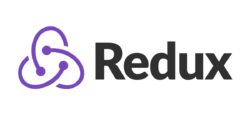Who is Redux for?
- Front-End Developers
- UI/UX Designers
- Web Developers
Why you should find out more
- Over 1,000 companies use Redux, including industry leaders such as Netflix, Airbnb, and Spotify.
- Redux has a 99% satisfaction rate among developers who use it, according to the State of JS survey.
- Redux has over 50,000 stars on GitHub and has been downloaded over 45 million times from npm.
What are the benefits of Redux?
- Centralized Data Store
- Easy Debugging
- Flexible Architecture
- Predictable State Management
Things to consider
- Learning Curve
Redux.js: A Summary
What is Redux.js?
Redux.js is a predictable state container for JavaScript applications.
It helps manage the state of an application in a centralized store, making it easier to reason about and debug.
Who should use Redux.js?
- Developers who are building complex applications with a lot of state management.
- Developers who want to have a predictable state management system.
Key Benefits and Features of Redux.js
- Predictable state management: Redux.js helps manage the state of an application in a predictable way, making it easier to debug and reason about.
- Centralized store: Redux.js uses a centralized store to manage the state of an application, making it easier to access and modify the state from different parts of the application.
- Easy debugging: Redux.js provides a tool called the Redux DevTools, which makes it easy to debug and track changes to the state of an application.
- Flexible architecture: Redux.js is designed to work with any UI layer, making it a flexible choice for developers.
How Redux.js Compares with Competitors
Redux.js is often compared to other state management libraries such as MobX and Vuex.
While each library has its own strengths and weaknesses, Redux.js is often favored for its predictable state management and centralized store.
Front-End Developers
Keep up to date about Advanced Guides offers like Redux
Privacy| Features |
|---|
Help & Support
- What is Redux?
- Redux is a predictable state container for JavaScript apps. It helps you write applications that behave consistently, run in different environments (client, server, and native), and are easy to test.
- What are the core concepts of Redux?
- The core concepts of Redux are actions, reducers, and the store. Actions are plain JavaScript objects that describe what happened. Reducers are functions that calculate a new state based on the previous state and the action. The store is the object that brings them together and holds the state tree of your application.
- What are the benefits of using Redux?
- Some benefits of using Redux are: predictable state management, centralized state management, easy debugging and testing, and improved performance.
- What is the difference between Redux and React Context?
- Redux and React Context are both state management solutions for React applications, but they have different use cases. Redux is better suited for complex applications with a large amount of state that needs to be shared across multiple components. React Context is better suited for simpler applications with a smaller amount of state that needs to be shared across a few components.
- What are Redux middleware?
- Middleware is software that sits between the application and the Redux store, and intercepts actions before they reach the reducers. It can be used for logging, crash reporting, asynchronous actions, and more.
- How do you debug a Redux application?
- There are several tools available for debugging a Redux application, such as the Redux DevTools browser extension, the Redux Logger middleware, and the React Developer Tools browser extension.

